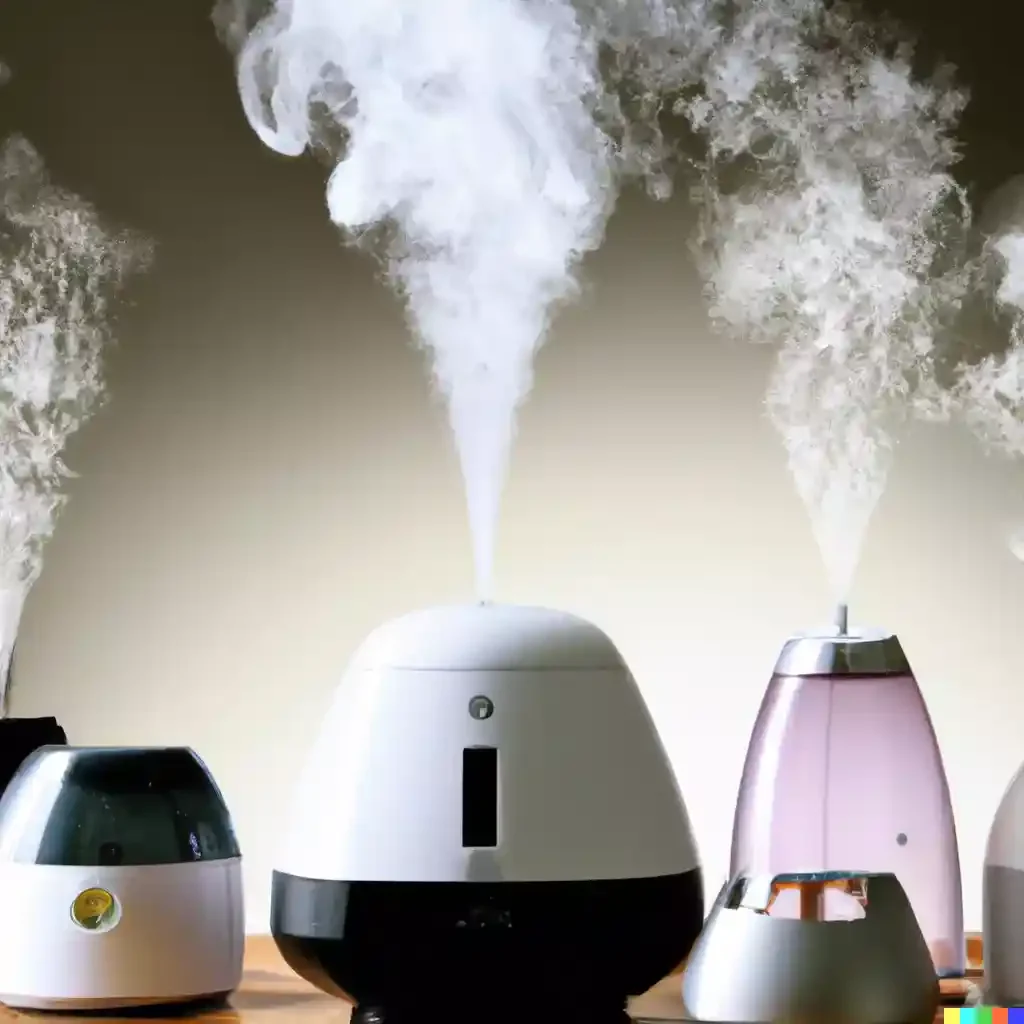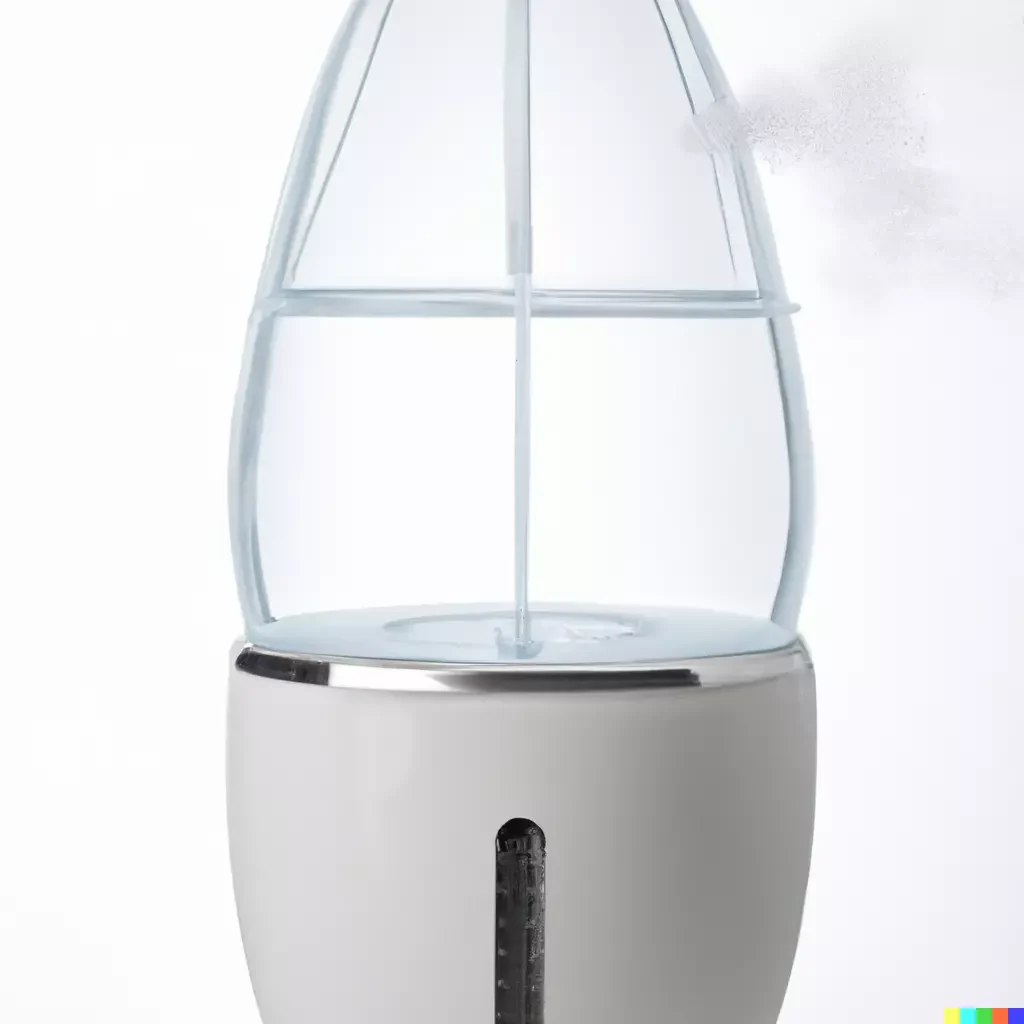An ideal air humidifier can help you maintain the right level of humidity in your home and provide numerous benefits such as reducing dry skin, preventing colds and flu, reducing static electricity, and protecting furniture.
The purpose of this blog post is to guide you through the process of choosing the ideal air humidifier for your home.
We will discuss the factors to consider, the different types of humidifiers, and the maintenance requirements to help you make an informed decision.
Factors to Consider when Choosing an Ideal Air Humidifier
Room Size
The size of the room where you plan to use the humidifier is an important factor to consider when choosing an ideal air humidifier. A humidifier that is too small for the room won’t effectively increase the humidity levels, while a humidifier that is too large for the room can lead to over-humidification.
Type of Humidifier
There is various types of humidifiers available, each with its own benefits and drawbacks. Some of the most common types are evaporative humidifiers, ultrasonic humidifiers, impeller humidifiers, cool mist humidifiers, and warm mist humidifiers.
Maintenance Requirements
Regular maintenance is important to keep your humidifier in good working order and to prevent the growth of mold and bacteria. Consider the cleaning requirements, water quality, and filter replacement when choosing an ideal air humidifier.
Noise Level
If you plan to use your humidifier in a bedroom, then it’s important to choose one that operates quietly. Look for models with low decibel ratings, or those with a night mode that lowers the noise level.
Additional Features
Additional features such as a humidistat, auto shut-off, aromatherapy, and LED display can enhance your experience with an air humidifier. Consider which features are important to you and choose an ideal air humidifier that meets your needs.
Types of Ideal Air Humidifiers
Evaporative Humidifiers
Evaporative humidifiers work by using a fan to blow air through a wet wick, filter, or belt, which then releases moisture into the air. They are affordable, easy to maintain, and energy-efficient.
Ultrasonic Humidifiers
Ultrasonic humidifiers use high-frequency vibrations to create a fine mist of water, which is then released into the air. They are relatively quiet, have a small footprint, and can be used with essential oils for aromatherapy.
Impeller Humidifiers
Impeller humidifiers use a spinning disk to create a cool mist, which is then released into the air. They are affordable, easy to maintain, and can be used to cover large areas.
Cool Mist Humidifiers
Cool mist humidifiers release a cool mist into the air, which can help cool the room during hot weather. They are also affordable, easy to maintain, and can be used with essential oils for aromatherapy.
Warm Mist Humidifiers
Warm mist humidifiers release warm steam into the air, which can help relieve cold and flu symptoms. They are also easy to maintain and can be used with essential oils for aromatherapy.
Note: When choosing an ideal air humidifier, consider the climate in your area, as well as the health benefits you hope to achieve.
Maintenance Requirements
Cleaning
Regular cleaning is important to prevent the growth of mold and bacteria in your humidifier. Look for models that are easy to disassemble and clean, and make sure to follow the manufacturer’s instructions for proper cleaning.
Water Quality
The quality of the water you use in your humidifier can affect its performance and the quality of the air it releases. Use distilled or demineralized water, or consider using a water filter to remove impurities.
Filter Replacement
Many humidifiers use filters to remove impurities from the water before it is released into the air. Check the manufacturer’s recommendations for filter replacement, and replace the filter as needed to maintain the performance of your humidifier.
Note: Proper maintenance will not only improve the performance of your humidifier but also ensure the health and safety of your family by preventing the growth of mold and bacteria.
Additional Features to Consider
Humidistat
A humidistat is a device that measures the humidity levels in a room and allows you to set a target level. Many humidifiers come with a built-in humidistat, which can help you achieve and maintain the ideal humidity level in your home.
Auto Shut-Off
An auto shut-off feature is a safety feature that turns off the humidifier when the water level runs low. This can prevent damage to the unit and prevent fire hazards.
Aromatherapy
Many humidifiers allow you to use essential oils to add a fragrant aroma to the air. This can enhance your overall experience with the humidifier and provide additional health benefits.
LED Display
An LED display can make it easier to monitor the humidity level and set the desired target level. It can also display other information such as the water level and the current temperature.
Note: When choosing an ideal air humidifier, consider which additional features are important to you and choose a model that meets your needs. These features can add to the overall convenience and enjoyment of using a humidifier in your home.
Conclusion
Having the right level of humidity in your indoor air can greatly improve your comfort and health. Choosing the ideal air humidifier can help you maintain this level.
Summary of Key Considerations
When choosing an ideal air humidifier, consider factors such as room size, type of humidifier, maintenance requirements, noise level, and additional features. Make sure to choose a model that meets your specific needs.
Final Thoughts
By taking the time to choose the ideal air humidifier for your home, you can improve your overall comfort, protect your health, and extend the life of your furniture and other household items.
Regular maintenance will ensure the performance and longevity of your humidifier.
Encouragement to Take Action
We hope this blog post has provided you with the information you need to choose the ideal air humidifier for your home.
Don’t wait any longer to improve your indoor air quality, take action today and start enjoying the benefits of a more comfortable and healthy living environment.
FAQs
Here are some Frequently Asked Questions:
- What is the ideal humidity level for my home?
A: A humidity level of between 30-50% is ideal for most homes.
- How often do I need to clean my humidifier?
A: Clean your humidifier at least once a week to prevent mold and bacteria growth.
- Can I use tap water in my humidifier?
A: No, it’s recommended to use distilled or demineralized water to prevent mineral buildup.
- What are the benefits of using an air humidifier?
A: Humidifiers can relieve dry skin, and sinus congestion, and improve air quality.
- Can I use essential oils in my humidifier?
A: Yes, many humidifiers are designed for use with essential oils for added aromatherapy benefits.






Pingback: Can You Put Eucalyptus Oil in a Humidifier? - Top Humidifier